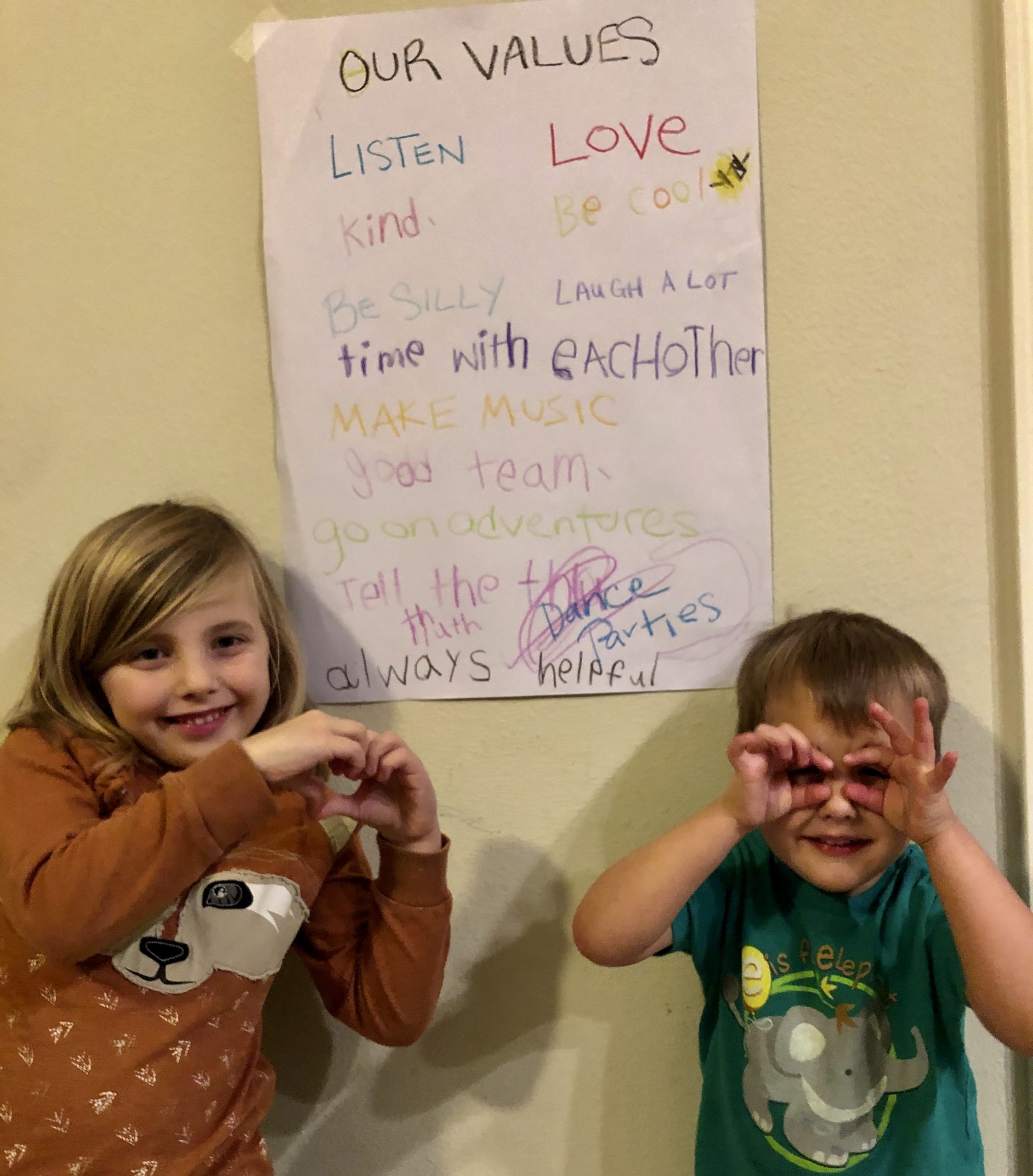Self-care during a deployment is essential.
I learned this the hard way the first time my husband was away for officer training. He was gone for 10 weeks before we got to see him again. I had a 3 year old and a 6 month old and we were also in the process of trying to sell our house.
Things were pretty chaotic and stressful.
I don’t remember a lot from that time other than feeling deeply sleep-deprived. Coincidentally, this is also probably why I don’t remember much. What I do remember is clinging to my yoga practice like a life raft. I also remember thinking that trying to do some self-care while my kids were in the bath was a great way to multitask.
Over the past 4 years, my husband has done a few TDY’s and trainings, but this is his first deployment and the longest stretch he’ll be away.
I’m not going to lie: solo parenting is not my favorite.
It’s hard and exhausting and the fact that single parents do this everyday, without fail while holding down a job (sometimes multiple jobs), blows me away.
Massive hat tip to all of the single parents.
The first few weeks of any deployment or TDY (temporary duty assignment) are always going to be rough. There’s an adjustment period and a settling into new rhythms.
This time felt especially hard. After 3 weeks of fighting, crying, and enough guilt to sink a ship, I decided to start over.
I turned to the 3 things I know best: Ayurveda, the science of habit change, and self-care.
These are the simple steps I took to re-establish self-care that will support me and my kids during this deployment.
First, I identified the hardest times of day.
This for me is nighttime, hands down. I wake up early, so by the time dinner rolls around my patience is on the fritz and I am exhausted. Not the best combo.
On good nights, I manage to make it through without yelling.
On bad nights, I hope I haven’t permanently scarred my children.
This is where I look to Ayurveda for my first lesson:
Nighttime is kapha time. Kapha is the dosha composed of earth and water. Nighttime is the cuddliest time of day. It’s a time of winding down and getting ready for deeper rest, which is in direct conflict with what my kids want to do: race around the living room swinging lightsabers, leaping from the beanbag chair to the couch, and eating vegan marshmallows.
Since I tend to be in a more pitta place (read fiery, impatient, and goal-oriented) at night, I’d often clash with my kids who are overtired, but all vata (distracted, full of energy, with joy masking their exhaustion).
So I made a list of kapha qualities I need to embody at night to help get my kids into a kapha place, too.
Nurture
Patient
Calm
Grounded
Warm
Cozy
Caring
Supportive
Compassionate
Safe
Loving
These words gave me a reminder of not only what my kids need, but also what I need to be in a kapha state of mind at night.
Second, I established rules of engagement.
I also call these “Family Values” and I co-created them with my kids. I did this so we could have some boundaries for our behavior and our actions.
This second lesson cam from the science of habit change.
If you want something to change, you need to make it obvious and easy. It also needs to be out in the open. Accountability helps, too. By making this tangible list and posting it in a place where we all can see it, I’ve given it both ease and accountability.
I go into more detail about how and why I did this in a post on Instagram. You can see the fruits of our labors in the picture above.
Third, I’m building in more consistency.
There are people who have a strong aversion to repetition. They like variety and never do the same thing twice, if they can avoid it. I am one of those people. Unfortunately, this is a terrible strategy for habit change.
The thing is, there is a difference between consistency and doing the same thing over and over again.
For my third lesson, I go back to the science of habit change and focus on consistency in the form of establishing consistent, weekly routines.
Instead of doing bath night whenever the mood strikes, we now do bath/shower nights on Sunday and Wednesday.
This framework gives my kids expectations for when things happen but also give me more guideposts during the week. This is super helpful during a deployment when time starts to lose meaning because you rarely get a break from parenting.
Finally, I come up with healthy actions and routines.
The good news is that I actually have a lot of these in place. In some cases, I’m adding to them a bit. I’ve also added a few strategies for avoiding yelling using self-care.
To be clear, it’s not that doing self-care prevents bad behavior by me. It’s more that I can use self-care practices to divert my attention or to specifically choose a different, healthier action.
My fourth lesson draws directly from the first 3.
When I find myself in situation that pushes against my boundaries or stretches my patience, I check in with our established family values.
I also made a list of Kapha-friendly practices that I can do easily.
And I actively choose consistency, even if it means saying no to things.
These 4 steps help me maintain healthy self-care during a deployment so that I feel less rundown, cranky, and stressed out.
It’s not perfect and neither am I.
I don’t stick to this 100% of the time. But when I do, it makes my life 150% easier.
Do you want to learn how to combine Ayurveda, the science of habit change, and self-care? join me for my next Self-Care Reset. This is a FREE 5-day program to reconnect to your needs and rebuild your self-care through simple, sustainable actions.



